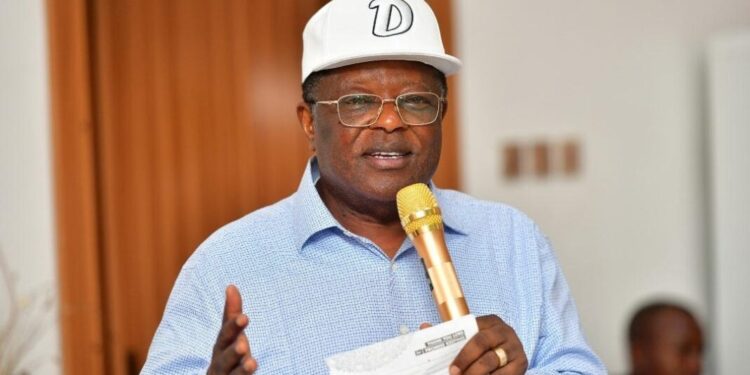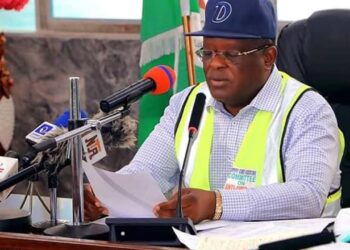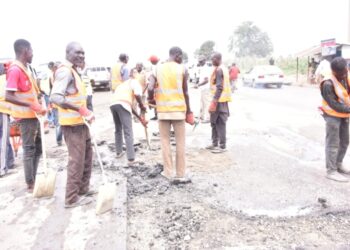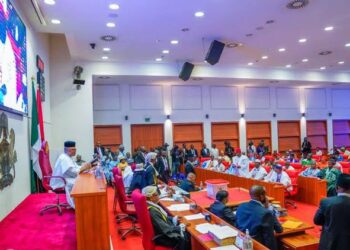The Federal Government has announced that it is considering Public-Private Partnership (PPP) arrangements to complete major road projects valued at about N3 trillion, following the withdrawal of the Nigerian National Petroleum Company Limited (NNPCL) from the tax-credit scheme.
The NNPCL stopped further funding under the scheme effective August 1, 2025, creating a significant gap in financing for several ongoing projects.
This was disclosed by the Minister of Works, David Umahi, during a media briefing in Abuja, according to the News Agency of Nigeria (NAN).
Umahi stated that President Bola Ahmed Tinubu had directed the ministry to explore alternative funding models. He added that a list of affected road projects is being compiled and will be evaluated under the PPP model, with preference given to contractors with strong financial and technical capacity.
“The Federal Government requires N3 trillion to complete road projects awarded under the Nigeria National Petroleum Company Limited (NNPCL) tax credit scheme.
“Works Minister David Umahi in Abuja while briefing newsmen. He said that following the NNPCL’s decision to halt funding from Aug. 1, President Bola Tinubu directed the ministry to explore alternative sources of financing to ensure no project is abandoned,” the NAN report read in part.
It further stated, “He noted that the ministry has compiled a list of all affected projects and will present them to the President for consideration under Public-Private Partnership (PPP) where applicable, especially for contractors with capacity and funding.”
The Minister had last week shared updates on the 43.6-kilometre Maraba–Keffi dual carriageway, one of the projects previously funded by the NNPCL. Now redesigned with concrete pavement, the project will be delivered in phases due to economic pressures. Only the first carriageway and two kilometres of the second will be completed with the N76 billion still available from NNPCL, while the remaining sections will be maintained for now.
More insights
The NAN report further noted that during the briefing, the Ministry’s Permanent Secretary, Mr. Olufunsho Adebiyi, responded to concerns about perceived regional bias in project distribution.
- He explained that factors such as terrain, groundwater conditions, and access to materials affect road construction costs across regions, making direct kilometre-based comparisons inaccurate. For instance, building one kilometre in Bayelsa could cost as much as constructing ten in Katsina due to varying geographical challenges.
The tax credit scheme had allowed NNPCL to fund critical road infrastructure across Nigeria in exchange for tax offsets. This was seen as a practical solution to longstanding budgetary constraints. However, with the company’s recent pullback, the viability of many projects has come under threat.























